Sarawak’s rapid growth, lofty plans should not be seen as desire for independence: Premier Abang Johari
Led by Premier Abang Johari Openg, Sarawak is making moves to cement its status as one of Malaysia’s most important states and has likened itself to the economic powerhouse region of Bavaria in Germany.
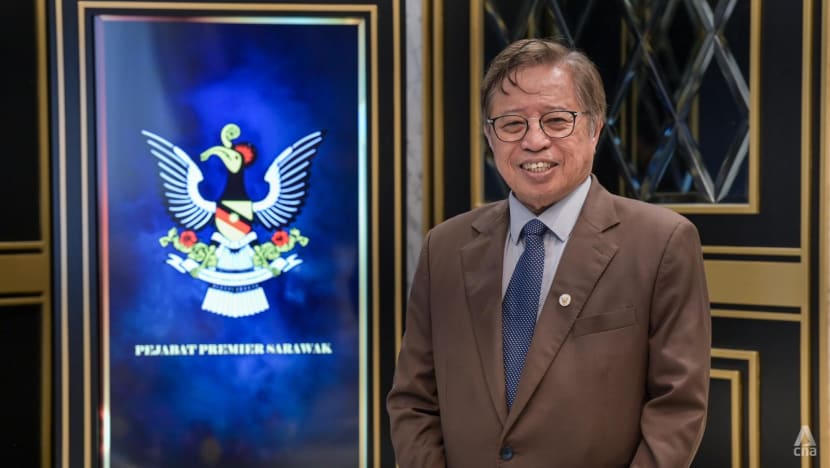

This audio is generated by an AI tool.
KUCHING: In a lounge on the highest floor of the Wisma Bapa administrative building near downtown Kuching in Malaysia’s Sarawak state, the walls are black and marble with ornate gold trims.
The floor is fully carpeted, the ceiling boasts chandeliers, and sofas line every corner of the spacious room. The lounge is part of the office of Sarawak’s Premier Abang Johari Openg, a key figure in the autonomous state.
Stacked on coffee tables are news magazines outlining Mr Abang Johari’s achievements and grand ambitions for Sarawak, which has massive oil and gas reserves and is well on track to have its own port, airline and financial institution.
And these grand plans have given the Premier the confidence to tout his state’s prowess and positioning in Malaysia as similar to the Bavaria region in Germany - known as an economic powerhouse there.
In recent years, Sarawak has retaken Bintulu Port from the federal government, bought over regional airline MASwings from the national flag carrier Malaysia Airlines, and is in the final stages of acquiring a controlling stake in Affin Bank.
These moves are necessary for Sarawak to “go forward”, while the state’s riches mean it can afford to give back to its people, Mr Abang Johari said in a wide-ranging interview with CNA in August.
In December 2023, he unveiled a plan to provide free tertiary education for Sarawakians in state-owned universities from 2026. The idea of free tertiary education for Sarawak natives was first mooted by Mr Abang Johari as part of his birthday wish in August 2022.
“For any country to develop, you need quality human resources, and that is where I think with good education behind them, you can get people out of poverty,” he told CNA at Wisma Bapa.
“It is more so when you have the economic ecosystem that allows them to make use of what they know to develop further.”
Mr Abang Johari acknowledged that the steep costs of tertiary education have long hampered poor families from sending their promising children to university.
“If you don't have that ability to provide the (tuition) fees to them … that is a loss to the country. So since we have the means, why not we share with them?” he added.
“That will be an approach for us to get people out of poverty, and that will also strengthen our economy in the long run.”
Who is Abang Johari Openg?
Sarawak’s Premier Abang Johari Openg, 74, is the youngest son of the state’s first governor Abang Openg.
Mr Abang Johari entered politics in 1977 as Parti Pesaka Bumiputera Bersatu’s youth leader and in 1981 he was elected to the state legislative assembly after winning the Satok seat.
In the years that followed, Mr Abang Johari held various ministerial portfolios, including industrial development, tourism and housing, before he was appointed deputy chief minister in 2016.
In January 2017, he became chief minister after the death of his predecessor Adenan Satem, known as a figure who reignited the state’s push to reclaim its rights under Malaysia Agreement 1963.
Sarawak changed its title of “chief minister” to “premier” in February 2022 to better reflect its status as equal partners with West Malaysia. In January 2023, Sarawak and Sabah were accorded the official status of “region” instead of “state”, further proof of the federal government’s increasing recognition of their claims.
In 2023, Sarawak posted a record-high revenue of RM13.3 billion, something political analysts have credited to the Premier’s leadership and his focus on developing new industries.
The “thrust” of Mr Abang Johari’s administration is the development of emission-free green technology, his office said on its website, noting that he had formed a research council to look into hydrogen application and reduce reliance on fossil fuels.
Mr Abang Johari is married with two children.
Sarawak has advanced rapidly since four of its parties pulled out of the once-dominant Barisan Nasional (BN) after the coalition’s unprecedented defeat at the 2018 General Election. The parties then formed the Gabungan Parti Sarawak (GPS) coalition, led by Mr Abang Johari.
With GPS enjoying an almost unopposed supermajority in the Sarawak legislative assembly, the relatively stable political situation there has allowed Mr Abang Johari to pursue mega infrastructure projects that he says will pull even more investment into the state.
Mr Abang Johari previously said Sarawak’s revenue for 2024 is set to surpass the RM13.3 billion (US$3.07 billion) collected last year. The state has set up its own sovereign wealth fund and is looking to build a new international airport in Kuching to improve connectivity.
Sarawak is also taking steps that will cement its status as one Malaysia’s most important states.
It is currently locked in negotiations with national oil company Petronas to reclaim its right as the sole buyer and seller of natural gas produced in the state, a move that could have significant financial implications for the federal government’s coffers, and just one facet of its push for greater autonomy in the Malaysian Federation.
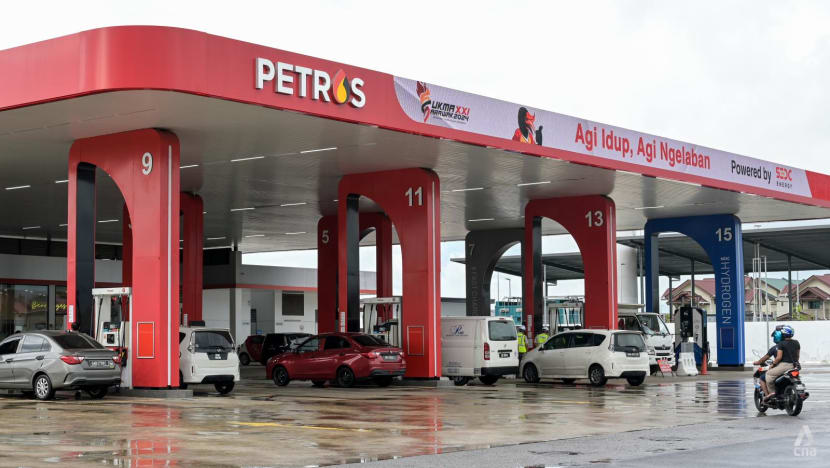
With that said, Mr Abang Johari is aiming for Sarawak to be the second highest contributor to Malaysia’s gross domestic product (GDP) before the next state polls due by 2026.
According to data from the Statistics Department of Malaysia that was released in July, Sarawak contributed 9.1 per cent to the GDP in 2023, coming in fourth behind Selangor (25.9 per cent), the Federal Territory of Kuala Lumpur (15.9 per cent) and Johor (9.5 per cent).
To this end, Sarawak is trying to emulate countries that have invested heavily in infrastructure to boost economic development, the Premier said.
“What Sarawak is doing now is to enhance our infrastructure, because we’ve got the strength, including energy, and we build our internal domestic connectivity,” he said, adding that the state is working with investors to build its economy.
“We are getting investment to Sarawak, and the benefits will be shared with the investors as well as the Sarawak government or, for that matter, Sarawak as a whole.”
But Sarawak’s pace of development and lofty ambitions should not be construed as a desire for independence, Mr Abang Johari said, dismissing calls by some Sarawak activists for the state to exit Malaysia.
These activists are frustrated with what they perceive as a chronic lack of progress by the federal government in returning Sarawak’s rights under the Malaysia Agreement 1963, the legal basis of the formation of Malaysia with Sarawak and Sabah as equal partners with Malaya.
“Of course, the federal government also acknowledged how we governed the state and how we moved forward. It doesn’t mean that there is an urge for us - some (have this) perception - (to go) on our own,” Mr Abang Johari said.
FREE TERTIARY EDUCATION
One area where Sarawak is going on its own is its plan to offer free education for Sarawkians in its five state-owned universities.
These are the Curtin University Malaysia Sarawak Campus, Swinburne University of Technology Sarawak Campus, University Technology Sarawak, Centre of Technology Excellence Sarawak, and i-CATS University College.
Local media had previously reported that some 25,000 students in Sarawak’s state-owned universities and higher-learning institutions stand to benefit from the proposed policy, which is expected to cost the government up to RM625 million a year.
The Sarawak government, however, has said that the free education will only apply to selected science and technical fields, in line with the state’s development plans and to optimise resources.
Opposition Sarawak assemblyman Chong Chieng Jen, from the Democratic Action Party, questioned these exceptions, calling it a “lame excuse”.
“Is there some hidden problem with the Sarawak government’s financial situation that it can now no longer come up with the fund?” he was quoted as saying in an Aug 29 Dayak Daily report.
CNA has contacted Sarawak’s Ministry of Education, Innovation and Talent Department for more details on which courses will be fully subsidised and the number of students who will benefit.
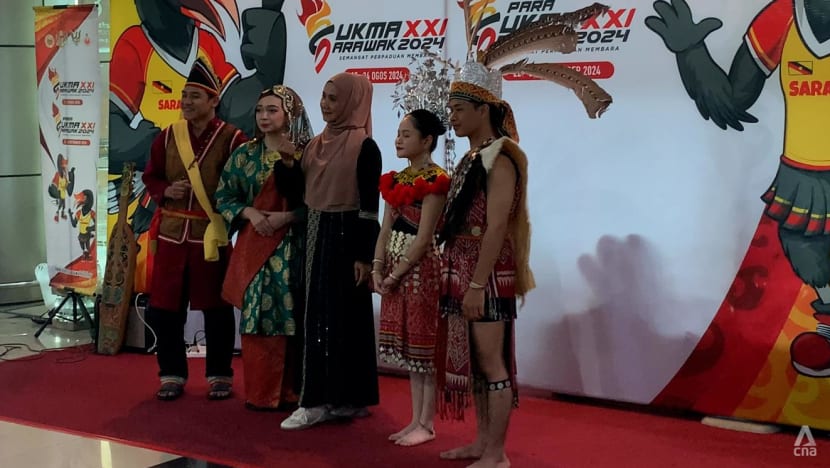
Mr Abang Johari hinted to CNA that these fully subsidised courses could be in areas like aerospace, semiconductor technology and green energy, seen as critical to provide talented manpower to industries that can foster economic growth.
i-CATS University College’s new aerospace degree programme welcomed its first batch of students in September, and Mr Abang Johari told CNA that Sarawak is working with the United States and the United Kingdom to bring in capable instructors in this field.
The federal government has said that Sarawak could become Malaysia’s aerospace industry hub, noting that it has shown keen commitment to producing skilled workers for the sector.
“Even the (area of) renewable hydrogen energy is new, so we need a lot of people who are knowledgeable in this new economy, because we are focusing on the green economy,” Mr Abang Johari said.
RENEWABLE ENERGY HUB
The Premier told CNA that Sarawak has already achieved carbon negative status due to its 70 per cent hydro and 30 per cent gas mix for power generation, paving the way for the state to supply renewable energy to the region.
Sarawak plans to install floating solar panels in its four dams, meaning it can potentially supply 15 gigawatts of renewable energy - far outstripping local consumption - by 2035, he said.
Sarawak has supplied power to Indonesia’s West Kalimantan for the past five years, and there are plans to share it with Sabah, Brunei and Singapore, putting Sarawak at the centre of a potential Southeast Asian electricity grid, Mr Abang Johari said.
The Sarawak-Singapore electricity supply interconnection project is expected to be commercially operational by 2031, Bernama quoted the state’s Utilities and Telecommunications Minister Julaihi Narawi as saying in May.
Mr Julaihi said the project was undergoing technical research, which involves survey work for the undersea cable route. Under the project, Sarawak is expected to export up to 1 gigawatt of renewable energy to Singapore.
In return, Sarawak has proposed that Singapore channel investments such as data centre projects into the state. Mr Abang Johari also told CNA that Singapore will be in charge of laying the undersea cables from Kuching to the island republic.
Singapore’s Energy Market Authority told CNA that it has not issued conditional approval for the plan to import electricity from Sarawak, and that it cannot share more details due to commercial sensitivities.
The authority is discussing the Sarawak project with “relevant parties” and will continue to engage companies with “credible and commercially viable” proposals that can contribute to Singapore’s decarbonisation, a spokesperson said.
CNA has reached out to Singapore's Sembcorp Industries - which is leading negotiations with Sarawak Energy Berhad - for the latest updates on the project, including plans for the undersea cables.
“We have a good trading relationship between Singapore and our side,” Mr Abang Johari said, adding that Sarawak has established a trade and tourism office in Singapore.
“We are working closely with the Singapore government as well as the Singapore private sector, which will enhance the economic collaboration between Singapore and Sarawak.”
HARNESSING NUSANTARA
Mr Abang Johari said Sarawak also plans to supply power to the rest of Kalimantan, including in East Kalimantan where Indonesia’s planned new capital Nusantara is located.
Kalimantan - which together with Sarawak, Sabah and Brunei form Borneo island - is expected to get an economic boost from the development of Nusantara.
Sarawak already holds a 25 per cent stake in a hydroelectric plant in East Kalimantan that plays a crucial role in powering the region, Mr Abang Johari said, adding that Sarawak is working with Indonesia on the potential for further economic collaboration.
“We are also planning to have a newer international airport in Kuching that will complement what we can do for Borneo,” he said, highlighting that Nusantara is only a 30-minute flight from Kuching.
“As far as our relationship with Indonesia goes, with West Kalimantan particularly and the rest of Kalimantan, there is a common platform between Indonesia and our side, and it's doing quite well.”
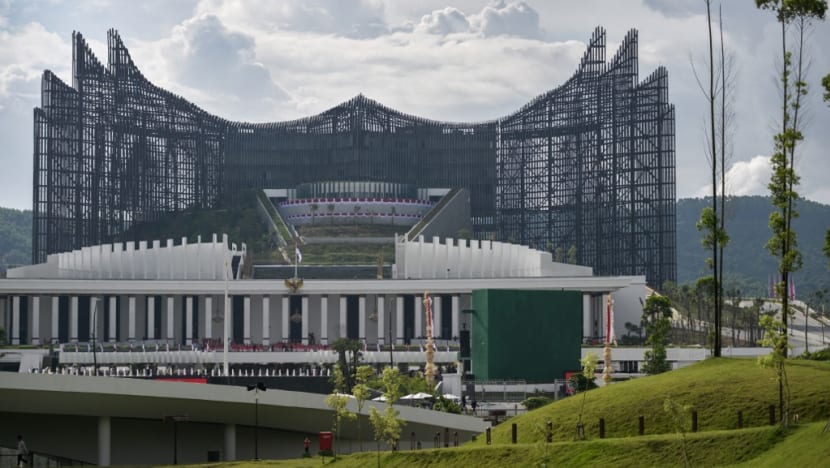
Meanwhile, Mr Abang Johari rejected plans by a Brunei-based firm to develop a trans-Borneo high-speed rail, saying that this would first have to involve multilateral negotiations among the different countries.
In March, Brunergy Utama’s proposal to launch the Borneo rail network made headlines, as the project aims to shorten travelling times between Brunei, Sarawak, Kalimantan and Sabah.
The company - which first started out as an oil and gas company before pivoting to infrastructure - said the US$70 billion project would involve routes of more 1,600km served by trains travelling up to 350kmh.
But the Brunei government subsequently distanced itself from the project, and Mr Abang Johari himself said on Mar 31 that Sarawak was not officially consulted on the project, Bernama reported.
“I understand that the initiative was by the private sector. If you want to have a pan-Borneo rail, it must be between Indonesia, Malaysia and Brunei. It must be a consensus,” he told CNA.
ABANDONING BARISAN NASIONAL
The beginning of Sarawak’s dizzying infrastructure push can be traced back to 2018, when Malaysia’s 14th General Election in May that year saw the end of BN’s six-decade reign, in part due to the multibillion dollar 1Malaysia Development Berhad (1MDB) scandal.
In September that year, Mr Abang Johari - who was then Sarawak’s chief minister before the title was renamed premier - announced that four of Sarawak’s parties had unanimously agreed to leave BN, citing the country’s political developments post-election then.
The parties were Mr Abang Johari’s Parti Pesaka Bumiputera Bersatu, Parti Rakyat Sarawak, Progressive Democratic Party, and Sarawak United People's Party. The parties would also form GPS, he said.
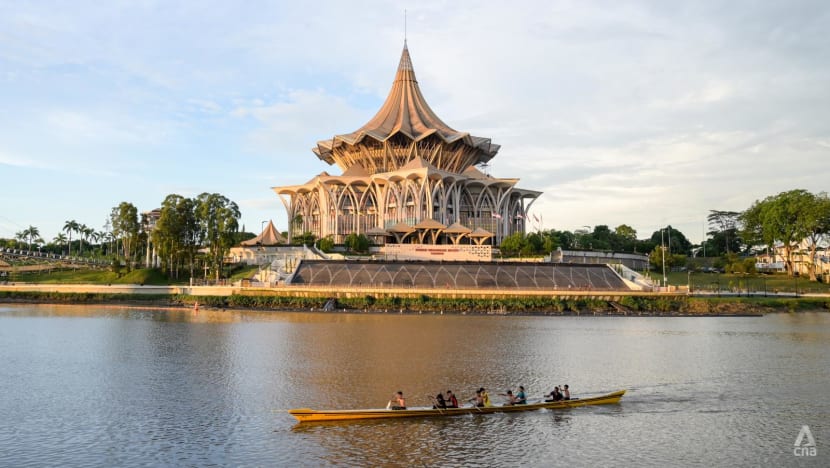
Mr Abang Johari told CNA that the decision to leave BN allowed the parties to “concentrate on our own state”.
“Meaning it’s not inward, but rather, we have our own state agenda, within the context of the Malaysian Federation. At the moment, for the past five to six years, I think we have developed in our own way,” he said.
This state-focused development plan seemed to resonate with Sarawakian voters, as GPS increased its seats from 67 in 2018 to 76 in the 82-seat state assembly following the 2021 Sarawak state election.
GPS now has 79 out of 82 seats after three assemblymen from a dissolved opposition party joined GPS in April. Another independent assemblyman has been described in local media as “GPS-friendly”.
Dr Arnold Puyok, a senior lecturer in politics and government studies at Universiti Malaysia Sarawak, attributed Sarawak’s political stability to its emphasis on religious inclusivity and pragmatic governance, which prioritises development and socioeconomic needs over the peninsula’s ethnic nationalism and religious rhetoric.
The 2021 Sarawak state election showed how identity politics in Sarawak focused on development and addressing bread-and-butter issues of Sarawakians, he wrote in a research article published by the ISEAS - Yusof Ishak Institute on Aug 13.
“This trend will likely continue in the next Sarawak state election,” Dr Puyok said.
“The ‘Sarawak First’ sentiment promoted by GPS is central to its political strategy; it addresses the immediate concerns of voters and maintains racial and religious harmony.”
MALAYSIA’S BAVARIA
GPS’ dominance in Sarawak, alongside the current fragmented political landscape in the peninsula, has earned it the moniker of “kingmaker” at the federal level.
After the past two general elections in 2018 and 2022, peninsular coalitions had to woo the support of Borneo-based parties, including GPS, to secure a parliamentary majority and form the government.
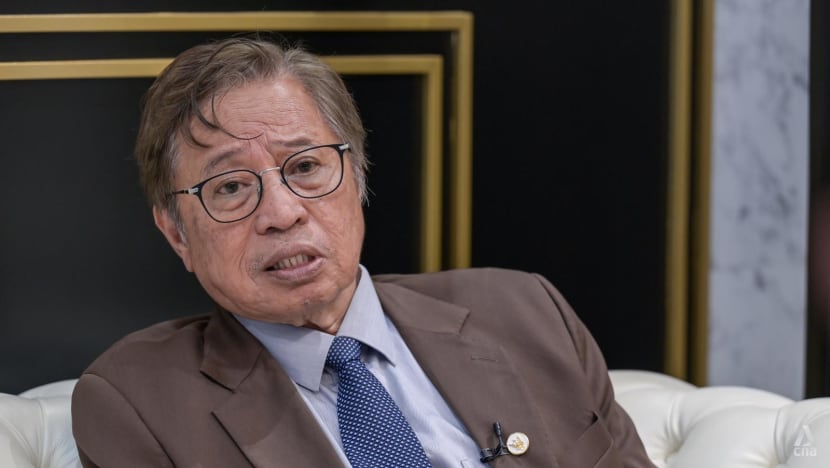
Mr Abang Johari, however, downplayed the kingmaker label, calling it “very subjective”.
“Some say that we are a kingmaker, some say that we are very fortunate because of the fragmentation in peninsular Malaysia,” he said.
“But to me, we just manage what we are facing today without jeopardising the whole federation. And then, move Sarawak forward.”
The premier repeated comparisons of Sarawak’s position in Malaysia with Bavaria, which is Germany's largest state by area and one of Europe's most advanced and successful economic regions.
“Germany is a federation, but Bavaria is strong. So in this particular case, because of our advantage in terms of our economic strength, we can be equated to be like what Bavaria is to Germany,” he added.




















